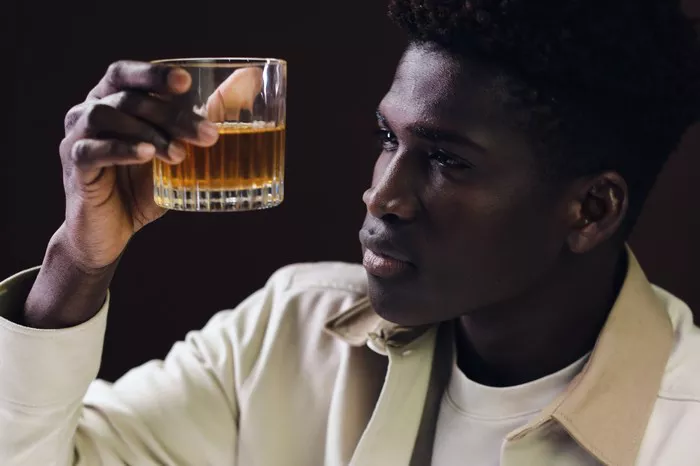The perennial debate of “which is better: rum or whiskey?” has long captivated the palates and preferences of spirit enthusiasts worldwide. With their distinct origins, production processes, and flavor profiles, these revered liquors hold a revered place in the world of alcoholic beverages. While personal taste often dictates the choice between the two, a deeper exploration of their histories, characteristics, and versatility reveals unique attributes that might sway the discerning drinker’s allegiance.
The Distinctive Heritage: Rum
Rum, the spirited elixir born from the sugar cane plantations of the Caribbean, carries within it the legacy of seafaring adventures and colonial history. Its origins trace back to the sugarcane fields of the 17th century, where the byproduct of sugar production—molasses—was fermented and distilled into the tantalizing spirit known as rum. This storied past imbues rum with a certain exotic allure, captivating drinkers with its tropical origins and historical significance.
Whiskey’s Timeless Elegance:
In contrast, whiskey’s origins stem from ancient Celtic and Gaelic traditions, with the art of distillation perfected in the misty landscapes of Scotland and Ireland. Evolving through centuries, whiskey—be it Scotch, bourbon, or rye—has earned a reputation for its complexity, craftsmanship, and deep-rooted cultural significance. Its varied styles and regional nuances offer an unparalleled spectrum of flavors, appealing to aficionados seeking depth and sophistication in their libations.
The Intriguing Production Processes:
The distinctive production methods employed in crafting rum and whiskey significantly influence their respective flavor profiles. Rum, typically made from sugarcane byproducts like molasses or fresh sugarcane juice, undergoes fermentation and distillation before aging in wooden barrels. The tropical climate of its origin accelerates maturation, contributing to the spirit’s rich and vibrant flavors.
On the other hand, whiskey’s production involves the fermentation of malted grains like barley, corn, rye, or wheat. The spirit is then distilled and aged in wooden casks, often within cool, damp cellars. The aging process in whiskey allows for a slow maturation, granting it the opportunity to absorb complex flavors from the wood, resulting in its nuanced taste profile.
Flavor Profiles: The Decisive Factor?
When it comes to flavor, the debate between rum and whiskey intensifies. Rum exhibits a broad spectrum of tastes, ranging from the crisp sweetness of light rums to the robust richness of aged, dark varieties. The tropical aging conditions infuse the spirit with notes of caramel, vanilla, tropical fruits, and spices, pleasing palates with its diversity and versatility in cocktails or sipped neat.
Conversely, whiskey presents an intricate tapestry of flavors shaped by its grains, yeast, water, and aging process. Scotch whiskey, for instance, boasts peaty, smoky undertones, while bourbon entices with its caramel, oak, and sometimes spicy notes. Rye whiskey, on the other hand, tends to be drier and spicier, offering a wholly different tasting experience.
Mixology Marvels and Culinary Pairings:
The versatility of rum and whiskey extends beyond savoring them neat; they are prized ingredients in the world of mixology. Rum’s sweet and fruity notes make it an ideal base for classic cocktails like the Mojito, Daiquiri, or Piña Colada. Moreover, its diverse flavor profile allows for seamless integration into contemporary mixology, inspiring bartenders to craft innovative libations.
Conversely, whiskey’s depth and complexity elevate classic cocktails such as the Old Fashioned or Manhattan to new heights. Its bold flavors also blend exquisitely in modern mixology, lending a sophisticated touch to concoctions that cater to evolving tastes.
Moreover, both spirits boast a culinary versatility that transcends the confines of the glass. Rum’s sweetness accentuates desserts, while its depth complements savory dishes in marinades or glazes. Similarly, whiskey’s boldness enriches sauces, marinades, and desserts, creating a symphony of flavors in culinary creations.
Sociocultural Impact and Global Appeal:
Beyond their taste profiles and mixological potential, rum and whiskey wield substantial sociocultural influence. Rum, deeply ingrained in Caribbean culture, symbolizes resilience, celebration, and community. Its association with pirates, naval traditions, and tropical paradises evokes a sense of adventure and freedom.
Conversely, whiskey embodies tradition, craftsmanship, and a sense of refinement, reflecting the heritage and pride of its originating regions. Its rituals, such as the art of whiskey tasting or distillery tours, foster a sense of camaraderie among enthusiasts, further cementing its global appeal.
Conclusion: A Matter of Personal Preference
The debate between rum and whiskey, each with its unique history, production processes, flavors, and cultural significance, ultimately boils down to individual preference. Whether one leans towards the exotic allure of rum, with its tropical vibes and diverse flavor palette, or the timeless elegance and depth of whiskey, characterized by its nuanced profiles and rich heritage, the choice remains deeply personal.
In essence, the quest for the superior spirit—rum or whiskey—transcends a mere comparison of taste; it’s a journey of exploration, cultural appreciation, and personal discovery through the fascinating world of spirits. As such, the real winner lies not in declaring a victor but in the sheer delight of experiencing the remarkable diversity and artistry encapsulated within each sip of these cherished libations. Cheers to the endless exploration of flavors, histories, and the ever-evolving preferences that make the world of spirits so captivating.


